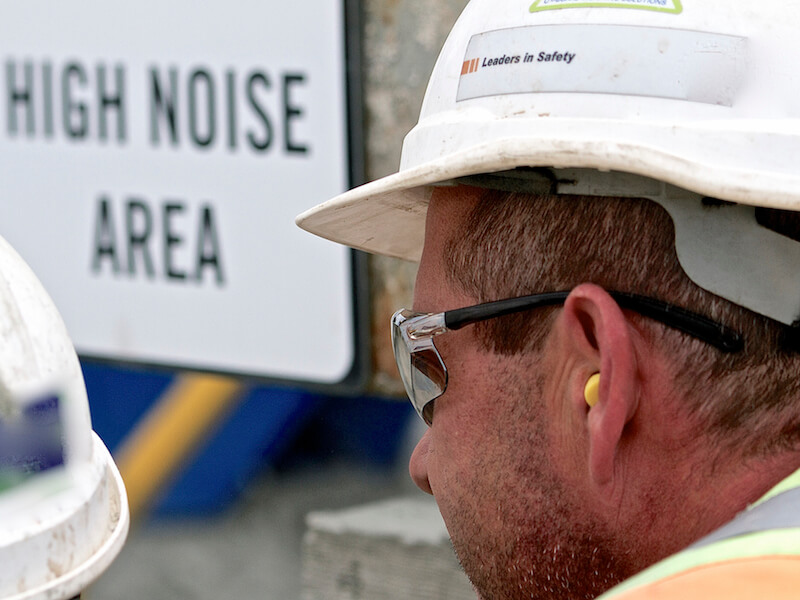
A loud workplace isn’t very good for your ears (or your focus, for that matter). Even moderate noise, when experienced for many hours a day, can begin to weaken the health of your hearing. This is why questions like “what hearing protection should I use?” are worth asking.
It’s not common knowledge that several levels of hearing protection are available. But it makes sense when you stop to consider it. A jet engine mechanic is going to require a different level of protection than a truck driver.
Hearing Damage Levels
The fact that 85dB of sound can start to harm your ears is a standard rule of thumb. Putting sound into context regarding its decibel level and how harmful it is, isn’t something the majority of us are used to doing.
When you’re sitting in your car in city traffic, that’s around 85 decibels. That isn’t a big deal, right? Actually, it’s fairly significant. At least, it’s a biggie after several hours. Because it’s not just the volume of the noise that you need to be aware of, it’s the duration of exposure.
Typical Danger Zones
If you’re exposed to 85 dB of noise for eight hours a day or more, you should probably think about using hearing protection. But that’s not the only threshold you should be aware of. If you’re exposed to:
- 90 dB (e.g., lawnmower): Anything above four hours is considered damaging to your ears.
- 100 dB (e.g., power tools): Your hearing will be injured when exposed to this noise level for 1 hour a day.
- 110 dB (e.g., leaf blower): Damage to your hearing occurs after 15 minutes of exposure to this noise level.
- 120 dB (e.g., rock concert): Any exposure can cause damage to your hearing.
- 140 dB (e.g., jet engine): Any exposure can lead to damage and could even cause immediate pain.
When you are going to be exposed to these levels of noise, wear hearing protection that will bring the decibels in your ears down below 85 dB.
Make Sure Your Hearing Protection Fits Comfortably
The effectiveness of ear protection is measured by something called a Noise Reduction Rate, or NRR. The outside world will become progressively quieter the higher the NRR.
It’s really important that you choose hearing protection with a high enough NRR to keep you safe (and your workplace will usually make recommendations about what level will be appropriate).
But there’s another aspect to consider also: comfort. It’s very important that your hearing protection is comfortable to wear if you want to keep your ears safe. Why? Because if your hearing protection isn’t comfortable, you’re not going to wear it.
What Are my Hearing Protection Choices?
There Are Basically Three Options:
- Earplugs that stay just outside of the ear canal.
- Earplugs that go within the ear canal
- Earmuffs.
Each form of protection has benefits and drawbacks, but the majority of your hearing protection choices will depend upon personal preference. For some people, earplugs are irritating, so earmuffs may be a better choice. Other people may appreciate the put-them-in-and-forget-them approach of earplugs (of course, at the end of the workday you should take them out for a good cleaning).
Find a Constant Level of Hearing Protection
Any laps in your hearing protection can result in damage, so comfort is an important factor. If you remove your earmuffs for ten minutes because they’re heavy and scratchy, your hearing can suffer over the long run. So the most important decision you can make is to choose hearing protection that you’re comfortable leaving in place during your workday.
Investing in the degree of hearing protection you need can help keep your ears healthy and happy.
Call Today to Set Up an Appointment
References
https://www.cdc.gov/nceh/hearing_loss/what_noises_cause_hearing_loss.html

